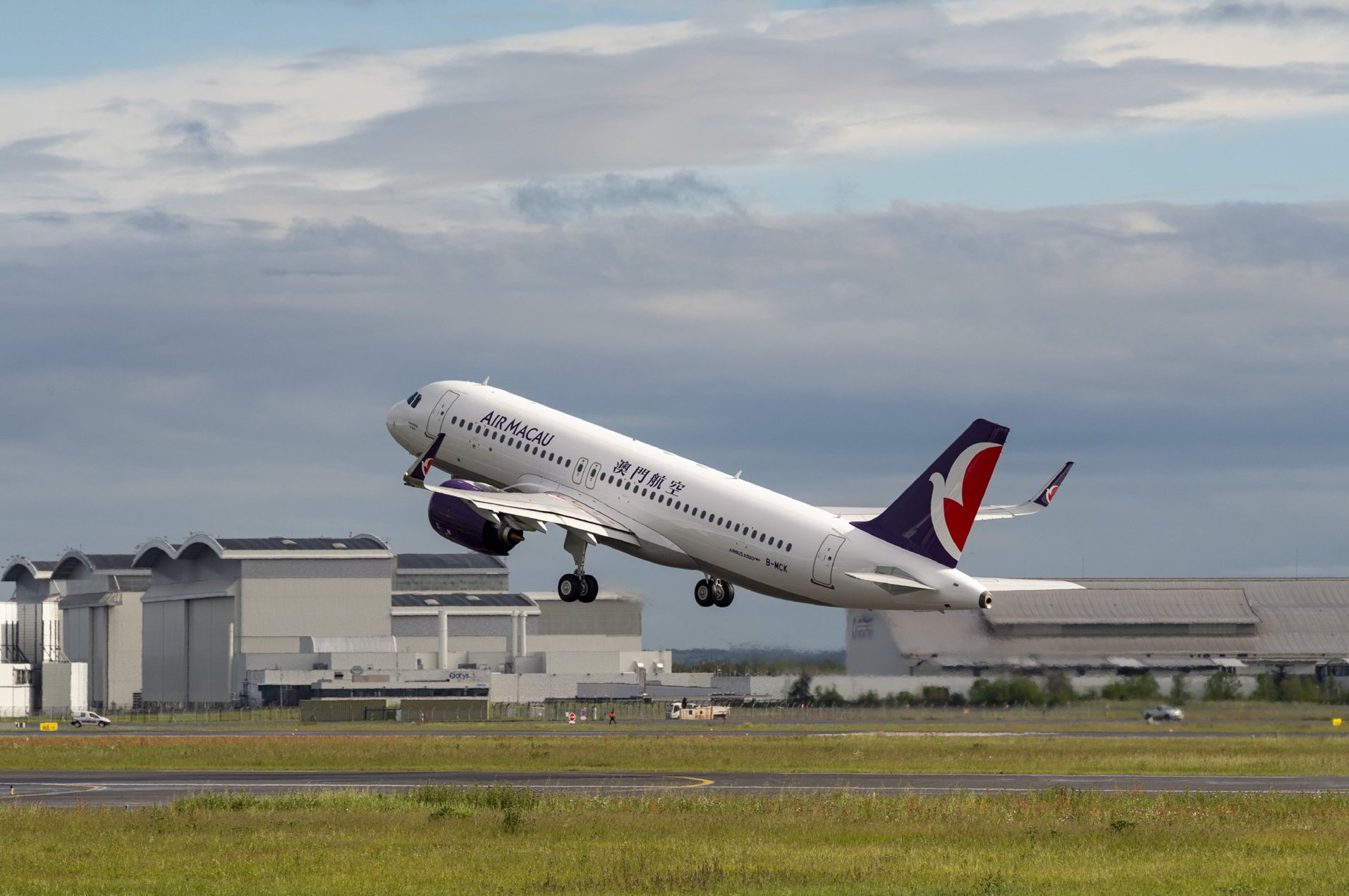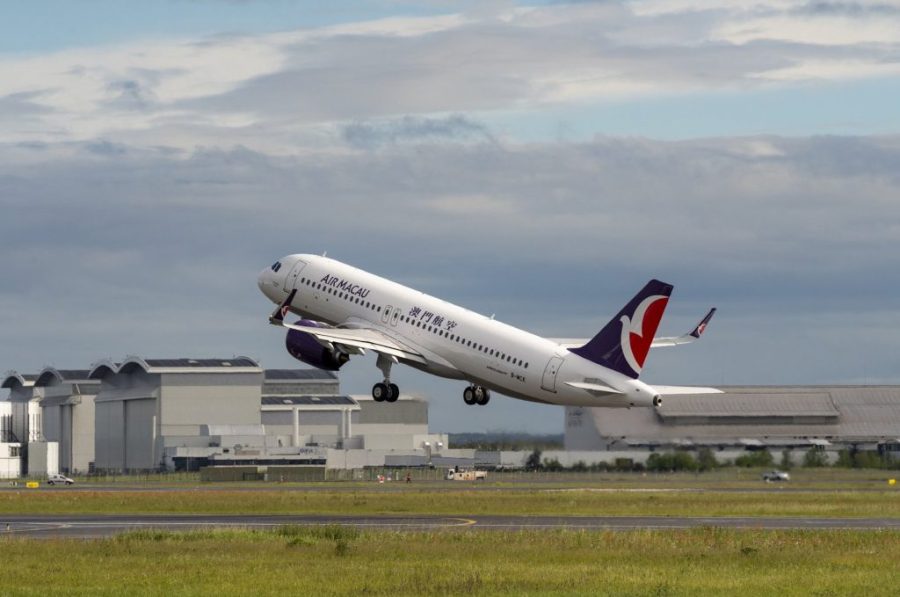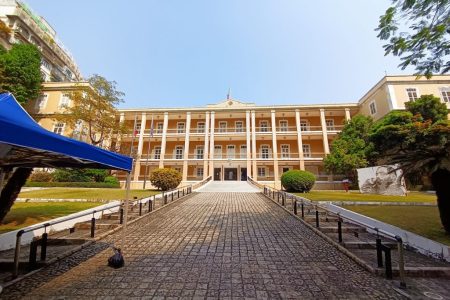An Air Macau flight en-route to Macau from Tokyo was forced to return to the Japanese capital on Wednesday afternoon, reportedly due to an engine problem.
Flight NX861 departed from Tokyo’s Narita Airport at 4:33 p.m. Wednesday and was due to arrive in Macau at 8:05 p.m. on the same day. Half an hour after takeoff, the plane was forced to return due to an issue with the right engine, as reported by Japanese media.
The aircraft is a brand new A320neo which was delivered to the airline on June 29. The registration number is B-MBO and Air Macau named the aircraft “Oriental.” The plane was first test-flown by its manufacturer, Airbus, on May 14 this year.
B-MBO is equipped with a new engine model, the PW1127G, produced by American manufacturer Pratt & Whitney (P&W).
The PW1100G series is reported to be quieter and more fuel efficient, benefitting the environment and the aviation industry.
However, this is not the first time the new engine has caused problems. Hong Kong’s low-cost carrier (LCC) HK Express was forced to ground its first few A320neo aircrafts due to issues with PW1100G series engines.
According to Macau Daily Times, in a report by Hong Kong’s South China Morning Post early last year, the LCC said that it was “seriously considering” halting any potential deliveries of the aircraft until this year “at earliest.”
Airbus delayed its first delivery of the new aircraft for half a year due to the engine problem.
Meanwhile, this year’s edition of the locally published “Aeronave Yearbook” wrote that in February last year, the European Aviation Safety Agency ordered the grounding of certain A320neo aircrafts equipped with the P&W engines.
The engine has been reported to be unsuitable for humid and hot climates. Meanwhile, India’s IndiGo Airlines has refitted the engine parts 69 times in 18 months.




